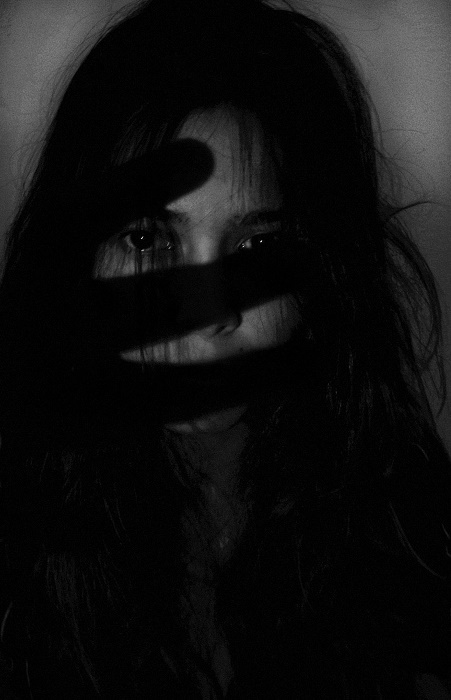- For making a diagnosis there are two major features that a depressed person encountered apathy and anhedonia. It varies from severe to mild, from temporary occurrence to intense consistent depression.
- There is a significant degree of depression if there is the presence of two of the following symptoms but lessen than five. These symptoms should be present during the period of two weeks.

- Low or depressed mood almost every other day of the week.
- Insomnia (less sleep) or hypersomnia (too much sleep)
- Change in appetite (either eat too much or too less)
- Gain or loss weight
- Feeling of invaluable as a person or having guilt
- Exhaustion
- Suicidal thoughts
These symptoms extract from the Major Depressive Disorder criteria but as it is the milder form and the person experiences fewer symptoms approximately every other day so it comes in Depression.
Symptoms of Major Depressive Disorder
- If five (or more) of the following symptoms have been present for like 2 same weeks of duration persistently and illustrate a significant change in daily functioning with either presence of apathy or anhedonia.
- Do not consider any symptoms that appear after using any medication or drugs.

- Low or depressed mood, having the feeling of worthlessness, hopelessness, or emptiness
- Noticeably decreased interest in those activities that are enjoyable at one point.
- Inability to feel the pleasure.
- Markedly weight loss or gain when a person does not even been on any diet.
- Problem with sleep Insomnia (less sleep) or hypersomnia (too much sleep) nearly every day
- Body Restlessness or agitation.
- Exhaustion or lack of energy.
- Lack of concentration, not able to make a rational decision, and diminished ability to think critically.
- Feeling of invaluable as a person or having guilt.
- Usually having death thoughts or suicidal ideation without having any determined or particular plan of attempting suicide.
Causes of Depression
There are a number of factors that can contribute to depression any negative event can increase the proneness of depression. The depressive person usually has negative views about himself, others, and the world. As a matter of fact, psychosocial and biochemical factors play their own roles. The causes of the depression are following:
Genes:
Not only the physical but the mental disorder also travel through genes. Family history plays a major role in contributing to depression. If anyone in the parents suffers from depression it is a high probability that the next generation getting it.
Biochemical Factors:
This is one of the factors that contribute to depression as a neurotransmitter specifically a reduction in the release of serotonin and norepinephrine can cause depression.
Traumatic Event:
Any traumatic event, sexual abuse, loss of someone, or emotional exploitation can trigger depression.
Medication
After any chronic disease or use of certain medicine especially that one use for the infection or treated the virus causes depression.
Alcohol and Drugs
These both are used to dismiss one’s contact with reality. Because sometimes getting into the real world make them so vulnerable to drugs that they prefer to abuse them. Alcohol and drugs are their little, temporary escape but when reality hits back depression is caused.
Psychosocial Factors
Some people already have sad personality traits or they are more sensitive to a particular situation which somehow contributes to depression too. People who are isolated or being bullied or have an abusive home environment can lead to depression.
Change in Life
Sometimes change in life such as getting married, shifting from one city to another, starting a new job, retiring or any other big change can result in depression. Depression is acute or chronic and highly depends on the positivity and the negativity of the change that occurs.
Symptoms of Seasonal Affective Depression
- As the name suggested it is the seasonal depression that hits with the weather change. It usually tripped when the fall starts. The seasonal depression gets worse at the start or end of the winter.
- The symptoms of this type of depression remain until the days of spring gets brighter. It is also known as ‘winter blues. Every other person can feel a little sad during cold nights.
- People have the symptom of this type of depression at the same time of year for example if a person feels sad at the end of November, this depression hit him every year at the same time. You might feel sad, low, moody, and exhausted for no reason.
- There is very less chance that this depression is triggered in summer or spring. But for some degree of people, the summer depression does exist too that begins with the end of spring or early summer.
- American psychological association categorizes it under the major depressive disorder but with seasonal features.
- Remain anxious most of the day.
- Sadness or being depressed.
- Significant Weight gain or cravings for carbs.
- Inactive, quiet, having low energy, and lack of motivation.
- Feeling of worthlessness.
- Inability to concentrate.
- Agitation and restlessness.
- Feeling muscles of arms and legs heavy.
- Having problems with sleeping. Usually gets overslept in winter.
- Experiencing a lack of interest and withdrawal from the social gathering.
- Suicidal thoughts.

The reason that professional gave about having these symptoms in winter are that in cold weather people are forced to get stuck in their houses because of the extreme weather condition, not having the sun explore much also makes people sad. In the United Kingdom, approximately 5% of people experience seasonal depression. Adults ages ranging from 18 to 30 are more likely to encounter this depression.
In summers
Some specific symptoms encountered when having summer affective depression that are:
- Insomnia
- Loss of appetite (eating less).
- Excessive worry or anxiety.
- Significant weight loss.
- Occurrence of violent conduct.
- Increase in irritability.
About 20% people of in America have the mildest form of winter blues.
Causes of Seasonal Affective Depression
Seasonal depression’s specific explanation is unknown to researchers. If you are predisposed to the illness, a lack of sunlight may make it worse. The theories stated that:
Changes in the biological clock:
Our body reacts differently in different weathers let’s just say the amount of sunlight we receive determines our internal body clocks that govern our hormones, sleep, and mood accordingly. As in winter, the daytime is short our activities get influenced accordingly. The inability to adjust in the span of the day creates an imbalance in the daily routine.
Unbalanced levels of neurotransmitters
The chemical in the brain is known as a neurotransmitter that communicates between nerves and exists in the brain. Serotonin is one of these hormones, and it helps people feel happy. If a person is already prone to SAD, the serotonin levels may already be low. As winters are cold and there is a lack of sunlight in the winter it can aggravate the problem because sunlight helps regulate serotonin. The lack of serotonin might cause depression further.
Vitamin D deficiency:
Vitamin D also raises your serotonin levels. Because vitamin D is produced in components by sunlight, a lack of sunlight during the colder months might cause a vitamin D shortage. The serotonin level and your mood may be impacted by that shift.
Melatonin boost:
Melatonin is a hormone that has an influence on your mood and sleep cycles. In some persons, the lack of sunlight may encourage increased production of melatonin. During the winter, you could feel lethargic and tired.
Negative thoughts:
People with SAD frequently experience tension, anxiety, and negative wintertime thoughts. These adverse thoughts may either be a cause or a result of seasonal depression.
